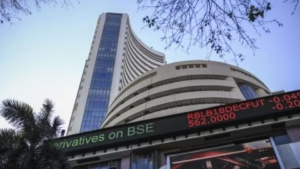
Financial markets play a pivotal role in the economic development of any country, and India is no exception. These markets facilitate the allocation of resources, enable risk management, and provide a platform for investors to grow their wealth. In this article, we will explore the structure, key components, and tools used in India’s financial markets, while also touching on the latest trends and opportunities.

What Are Financial Markets?
Financial markets are platforms where buyers and sellers trade financial instruments such as stocks, bonds, commodities, currencies, and derivatives. In India, these markets are regulated by institutions like the Securities and Exchange Board of India (SEBI) and the Reserve Bank of India (RBI), ensuring transparency and fairness.
Key Components of India’s Financial Markets
- Stock Market
The stock market is where shares of publicly listed companies are traded. The two major stock exchanges in India are the Bombay Stock Exchange (BSE) and the National Stock Exchange (NSE). Investors can participate in equity trading, derivatives, and mutual funds. - Debt Market
The debt market deals with fixed-income securities such as government bonds, corporate bonds, and treasury bills. It is a crucial source of funding for both the government and private sector. - Commodity Market
India’s commodity markets allow trading in agricultural products, metals, and energy resources. The Multi Commodity Exchange (MCX) and the National Commodity and Derivatives Exchange (NCDEX) are the leading platforms. - Forex Market
The foreign exchange market facilitates the trading of currencies. It is essential for international trade and investments. The RBI plays a significant role in regulating this market. - Derivatives Market
Derivatives are financial contracts whose value is derived from an underlying asset. Options, futures, and swaps are popular instruments used for hedging and speculation.
Trends Shaping India’s Financial Markets
- Digital Transformation
The rise of fintech platforms and online trading apps has democratized access to financial markets. Platforms like Zerodha, Groww, and Paytm Money are gaining popularity among retail investors. - Sustainable Investing
Environmental, Social, and Governance (ESG) investing is gaining traction in India. Investors are increasingly focusing on companies with sustainable practices. - Cryptocurrency Boom
Despite regulatory uncertainties, cryptocurrencies like Bitcoin and Ethereum are attracting significant interest from Indian investors. - Rise of Retail Investors
The COVID-19 pandemic led to a surge in retail participation in the stock market, driven by low-interest rates and increased awareness. - Global Integration
India’s financial markets are becoming more integrated with global markets, offering investors exposure to international opportunities.

Tips for Investing in India’s Financial Markets
- Educate Yourself
Before investing, understand the basics of financial markets, risk management, and investment strategies. - Diversify Your Portfolio
Spread your investments across different asset classes to minimize risk. - Stay Updated
Keep track of market news, economic indicators, and regulatory changes. - Use Reliable Tools
Leverage SEO and analytical tools to research and optimize your investment decisions. - Consult Experts
Seek advice from financial advisors or analysts to make informed decisions.
Conclusion
India’s financial markets offer immense opportunities for investors, but they also come with risks. By understanding the structure of these markets and leveraging the right tools, you can make informed decisions and optimize your investment strategy. Whether you are a seasoned investor or a beginner, staying informed and using data-driven insights is the key to success in India’s dynamic financial landscape.


